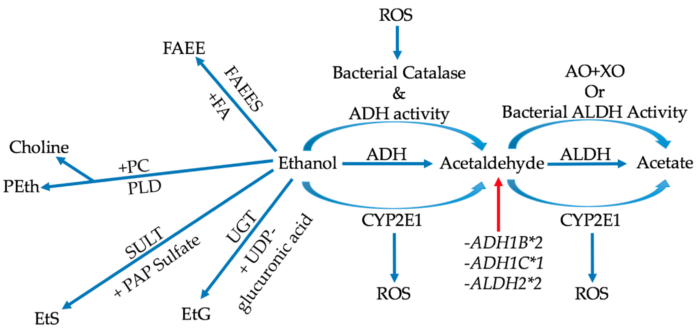
The Link between Alcohol Consumption and Colon Cancer: Unraveling the Connection
Alcohol consumption has long been a topic of discussion when considering its impact on our health. While moderate alcohol intake has been associated with certain health benefits, there is growing concern about its role in the development of various types of cancer, including colon cancer. In this article, we will explore the link between alcohol consumption and colon cancer, aiming to unravel the complex connection. Additionally, we will address some frequently asked questions related to this topic.
Understanding Colon Cancer:
Colon cancer, also known as colorectal cancer, is the third most common cancer worldwide and a significant cause of cancer-related deaths. It begins as small, noncancerous clumps of cells called polyps that develop on the inner lining of the colon or rectum. Over time, these polyps can turn cancerous and grow, leading to the formation of tumors in the colon.
The Link between Alcohol Consumption and Colon Cancer:
Research suggests that consuming alcohol increases the risk of developing colon cancer. Several mechanisms have been proposed to explain this connection. First, alcohol itself has been classified as a carcinogen, meaning it can promote the development of cancer cells. It damages DNA, leading to genetic mutations that can result in uncontrolled cell growth and tumor formation.
Moreover, alcohol metabolism in the body produces acetaldehyde, a toxic substance that can further damage DNA and interfere with its repair mechanisms. This continuous DNA damage and impairment of repair mechanisms increase the likelihood of developing cancerous cells.
Alcohol consumption also influences the production of certain hormones that may contribute to colon cancer. Higher alcohol intake has been associated with elevated estrogen levels in women. Estrogen, in excess, has been linked with an increased risk of hormone-related cancers, including colon cancer.
Furthermore, heavy alcohol intake can lead to chronic inflammation of the colon, which is thought to contribute to the development of cancer. Chronic inflammation stimulates cell proliferation and reduces the body’s ability to control abnormal cell growth.
Dose-Response Relationship:
Studies examining the relationship between alcohol consumption and colon cancer risk have consistently shown a dose-response relationship. This means that as alcohol intake increases, so does the risk of developing colon cancer. Even moderate alcohol consumption, defined as up to one drink per day for women and up to two drinks per day for men, has been associated with an increased risk.
Frequently Asked Questions:
Q: Does the type of alcohol consumed matter in relation to colon cancer risk?
A: No. The link between alcohol consumption and colon cancer risk has not been found to differ based on the type of alcohol consumed. Beer, wine, and spirits all have similar effects on colon cancer risk.
Q: Are occasional binge drinking episodes more harmful than consistent moderate alcohol consumption?
A: Studies indicate that regular, moderate alcohol consumption carries a higher risk of colon cancer than occasional binge drinking episodes. However, both patterns of alcohol consumption are associated with an increased risk compared to abstaining from alcohol altogether.
Q: Can alcohol-related colon cancer risk be offset by a healthy lifestyle?
A: While maintaining a healthy lifestyle, including regular physical activity, consuming a nutritious diet, and avoiding tobacco use, can reduce the risk of colon cancer, it does not entirely offset the increased risk associated with alcohol consumption.
Q: Does the link between alcohol consumption and colon cancer differ between men and women?
A: No significant gender differences have been observed regarding the link between alcohol consumption and colon cancer. Both men and women are at an increased risk when consuming alcohol.
In conclusion, research indicates a clear link between alcohol consumption and colon cancer. Alcohol, as a carcinogen, damages DNA, impairs repair mechanisms, and promotes the growth of cancerous cells. Additionally, alcohol-related hormone changes and chronic inflammation contribute to the development of colon cancer. It is important for individuals to be aware of these risks and consider moderating their alcohol intake to minimize their chances of developing this potentially life-threatening disease.

















